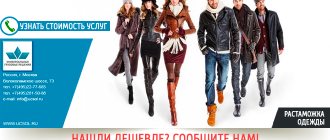Customs clearance is a set of activities that are carried out by participants in foreign trade activities (importers, customs authorities, customs representatives, certification and insurance companies and banks) when importing goods from abroad. The customs legislation of the Russian Federation clearly tells us that all foreign goods when moving across the customs border of the Eurasian Economic Union (EAEU) must be declared (with the exception of goods of individuals). That is, an importer importing foreign goods must fill out a customs declaration and pay all due customs payments (customs duties, taxes, excise taxes and fees), and the customs authority must record in a unified national system the fact of importation of these goods, their type and quantity, as well as size funds received into the budget of the Russian Federation. We call this set of activities customs clearance of goods.
The word “customs clearance” or “customs clearance” is professional jargon in customs circles and it means customs clearance - customs clearance of cargo at customs. After which this product can be used, sold, consumed, depending on the purpose of import.
During our work in this segment, we have accumulated the necessary experience in import clearance, which helps us provide high-quality customs clearance services in a short time, usually within a few hours. If necessary, our employees will help prepare the necessary package of documents for import and customs clearance of cargo at customs, depending on the specifics, and will calculate and report all the necessary costs.
All these services are provided on the basis of a concluded brokerage agreement and in accordance with current legislation and we bear full legal and financial responsibility to clients and customs.
We work with any participants in foreign trade activities:
- Individuals
- Legal entities
- Individual entrepreneurs
Features of customs clearance of goods in Russia
When importing goods into Russia and clearing them through customs, there are a number of features:
- The goods must not be prohibited for import according to current legislation (government orders and regulations);
- When importing, customs duties are paid or not paid in accordance with the current EAEU code and tariff.
Features of customs clearance of goods for individuals - they can import goods only for personal use, with the exception of commercial shipments and those prohibited by the list. Goods can be imported both in accompanied baggage, for example, by an individual in hand luggage and checked baggage, and unaccompanied by a transport carrier. And, as a rule, they are cleared through customs without paying customs duties if the value does not exceed 500 euros and the weight is 25 kg. In case of excess, a duty of 4 euros per kg of excess weight is paid, or 30% of the cost of the excess. When transporting baggage by air, the duty-free import limit is 50 kg and no more than 10,000 euros per person.
Features of customs clearance of goods for legal entities and individual entrepreneurs - there are their own import rules. They can import any consignments of goods in accordance with current legislation. Upon initial delivery, the company must be registered as a participant in foreign trade activities at customs (registration takes place at the time of filing the customs declaration). And when registering goods at customs, as a rule, customs payments (customs clearance fee, duty, VAT, excise tax), which are calculated according to the codes of the Commodity Nomenclature of Foreign Economic Activity and the country of origin of the goods, must be paid.
Goods from the CIS countries and Serbia have preferences and are not subject to customs duties, only VAT is paid.
It is advisable to take all these points into account and calculate them at the time of delivery. We will be happy to help you!
Documents and information for customs clearance of goods to foreign trade participants
- List of documents for registration of an individual at customs (View)
- List of documents for registration of a Legal entity at customs (View)
- List of documents for registration of an individual entrepreneur at customs (View)
- List of documents for customs clearance “Import” (View)
Tire certification
Tire certification is a range of operations aimed at proving the product’s compliance with the required level of quality, reliability and safety.
The sale of goods on the territory of our country is not possible without presenting a certificate of conformity with the CU TR. The TR contains information regarding the import of goods into markets for their free sale.
Tire certification is carried out to prove reliability and confirm that the highest level of quality is maintained. The resulting document helps eliminate the risk of unforeseen dangerous incidents. Both new and refurbished products are subject to a mandatory inspection process. Used tires do not fall into this category.
Tire certification services provide a chance to make the procedure for preparing shipping documents as fast as possible and are selected based on the main points: the purpose of using the product, user characteristics, country of origin, etc.
The certificate is issued subject to the following steps:
- Making a request;
- Studying the application;
- Product recognition;
- Implementation of laboratory control;
- Review of the inspection protocol;
- Registration and receipt of the document.
Customs clearance of goods from any country in the world
will provide assistance with customs clearance of any goods imported from various countries of the world. For customs clearance specialists working in our company, the geography of import of your goods is not important - clearance at customs will go almost unnoticed for you! We provide customs clearance services from China and other Asian countries, Turkey, Germany, Italy, Ukraine, Poland, Europe and other countries of the world. Read more
Customs clearance services in any city are carried out by customs specialists in any customs office of the Russian Federation: St. Petersburg, Moscow, Nizhny Novgorod, Yekaterinburg and many others. Read more
Customs clearance of goods is the main activity of our company. We provide customs clearance services for various types of goods delivered from abroad by any means of transport. A professional approach to business, knowledge of current legislation, provision of services in any city and customs office of the Russian Federation, the shortest possible time and affordable cost of services are not all the advantages of cooperation with us.
Are you planning to import goods, but don’t know how much it will cost you to clear them through customs?
Customs clearance of goods in Russia has its own nuances. There are certain requirements for goods imported into Russia. Many goods can be imported only if they have the appropriate certificates and other permits. For example, many products are subject to mandatory certification by the technical regulations of the Customs Union (TR CU), for which “certificates” or “declarations of conformity” must be issued confirming the quality of the products.
Such goods include: food, cosmetics, various equipment and electrical appliances, containers and packaging, furniture and other goods. Also, when importing medical goods, a Registration Certificate (RU) issued by Roszdravnadzor must be provided, without which it will not be possible to carry out customs clearance.
Medicinal cosmetics and dietary supplements are subject to obtaining a certificate of state registration (SGR), which is also not issued in one day.
Ignorance of the slightest subtleties of legislation can lead to delays in goods at customs and the emergence of unplanned costs, which can turn all undertakings into losses.
Our company’s specialists carry out customs clearance of absolutely any goods and cargo of foreign trade participants, which allows us to help you in solving any of your problems.
We will be happy to advise and calculate all costs associated with importing your goods to Russia!
International transportation and delivery of tires
TC Standard Line carries out international transportation of tires and any other goods. Transportation is carried out in compliance with the conditions of required protection from adverse environmental conditions. Sometimes auxiliary packaging is used.
International delivery of tires takes place strictly according to transportation rules. To transport goods, specially equipped open or closed vehicles are used. To avoid the negative impact of weather conditions on tires, they are additionally packaged in bags. When transported in open vehicles, the cargo is covered with a tarpaulin awning.
Tire transportation services are provided subject to the following requirements:
- Transportation with cameras requires treatment with talc or special lubricants;
- Transportation is carried out exclusively in a vertical condition. The tires are placed in a pyramid and secured with specialized straps;
- Transportation of tubeless tires is carried out using spacers, thanks to which the original appearance and characteristics of the goods are preserved and distortion is eliminated;
- Tires are not transported together with petroleum products and various other substances that can damage the tire.
Services for international transportation of tires include documentary support. Professionals of the Standard Line company help clients in collecting and processing the required documents. During transportation, the foreign trade participant must keep with him a complete technical description of the goods. Transportation is carried out using various vehicles, including:
- Automotive;
- Air;
- Railway;
- Marine;
- Multimodal.
Do I need to pay a recycling fee?
Yes, you need to pay it. Its amount depends on the power of the tractor and the age of the tractor.
The detailed table is given below:
| Wheel tractors | ||
| Power | New (up to 3 years), in thousand rubles | Over 3 years, in thousand rubles |
| Up to 30 hp | 60 | 270 |
| 30 – 60 hp | 75 | 330 |
| 60 – 90 hp | 105 | 450 |
| 90 – 130 hp | 225 | 1050 |
| 130 – 180 hp | 375 | 1500 |
| 180 – 220 hp | 450 | 2250 |
| 220 – 280 hp | 570 | 3000 |
| 280 – 340 hp | 750 | 3300 |
| 340 – 380 hp | 1005 | 3750 |
| More than 380 hp | 1350 | 6000 |
| Crawler tractors | ||
| New (up to 3 years), in thousand rubles | Over 3 years, in thousand rubles | |
| More than 100 hp | 225 | 1050 |
| 100 – 200 hp | 375 | 1500 |
| More than 200 hp | 1350 | 4200 |
Difference from other special equipment
It does not matter whether the tractor meets the requirements of the European environmental standard. The engine of a tractor or other special equipment ( for example, an excavator) can be of Euro 4 or Euro 5 . This is due to the fact that tractors and other types of special equipment are not widely used on public roads.
There is one important nuance! When purchasing tractors or other special equipment abroad, you must take care to obtain permission from the manufacturer to export the machine. This document is not mandatory; customs may require it.
For example, the Swedish automaker Volvo issues permits for the import of its tractors and other special equipment only after it arrives at a temporary storage warehouse at customs. The document issuance period is 10 days from the date of the cargo’s arrival at customs. This period should be taken into account when planning the customs clearance process.
Don't know how to properly import a boat to Russia? See about this in the article: customs clearance of a boat motor. Engine customs clearance details are described here.
Do you want to understand how car customs clearance is calculated? See here.
Varieties
As a rule, a tractor is a special equipment that is used to perform agricultural work, as well as to tow and push another vehicle, implement or load.
Devices include:
- plows;
- seeders;
- binders;
- cultivator installations;
- other.
Tractors are divided into the following types:
- controlled by a driver walking alongside;
- wheeled tractors for semi-trailers;
- tracked;
- rarely used. For example, tractors for laying ski tracks.
According to the Commodity Nomenclature of Foreign Economic Activity, the size of the duty and the amount of tax that will need to be paid at customs depend on what type of tractor it is.
Table of customs duties on wheeled tractors 2020
| Age | New | From 3 to 5 | More than 7 years |
| Amount of duties and VAT | Customs duty 0% + 20% VAT | Customs duty 0% + 20% VAT | Customs duty 15% + 20% VAT |
Rates are current according to current regulations, please check with customs brokers for information.
Well, in conclusion, we suggest that those wishing to purchase imported tractors take care of the issue of whether the required models have all the necessary attributes of the ROPS/FOPS safety standard. Be careful when operating.
Our website has a section dedicated to collecting information on spare parts for special equipment. Tractors from different manufacturers are also present, you can find them at this link. At this link you can find the necessary manuals and operating manuals for certain types of tractors.
Required documents
You need to prepare the following documents:
- Russian and foreign passports of the person who is driving and who is responsible for importing the car into the territory of the Russian Federation;
- vehicle registration certificate in a foreign language;
- a certificate confirming the fact that the imported hybrid car meets environmental standards;
- transit declaration;
- a statement setting out a request to register a hybrid;
The amount deposited in advance into the deposit account must also be indicated here.
- a receipt indicating that the deposit was made;
- notification that the vehicle has arrived at the temporary storage warehouse;
- auto expert's conclusion, which indicates all the technical characteristics of the car.
Features of customs clearance of shoes and clothing
ATTENTION!
We work only with legal entities. When clearing clothes from the EU, Turkey, and Asian countries through customs, it is necessary to take into account the nuances that you need to familiarize yourself with before going through control. Basic moments:
- declaration is carried out in batches weighing from 35 kg and costing from 65 thousand rubles;
- Most goods are subject to duty in euros based on weight in kg;
- piece-by-piece duty is practiced when importing leather and fur products;
- when importing products from certain countries, it is possible to receive benefits; to provide them, you need to prepare a certificate of origin for the clothing;
- adult clothing is subject to VAT at 20%;
- children's clothing (up to 14 years old, from 14 to 18 years old - already teenagers) is subject to a reduced tax - 10%;
- used clothing is subject to a higher duty - 20% for each ton, including VAT;
- When importing branded products, you need to check through the OIP database whether they are covered by intellectual rights; such goods require an import permit from the manufacturer.
When importing certain items of clothing and footwear, a sanitary and epidemiological examination may be required.









